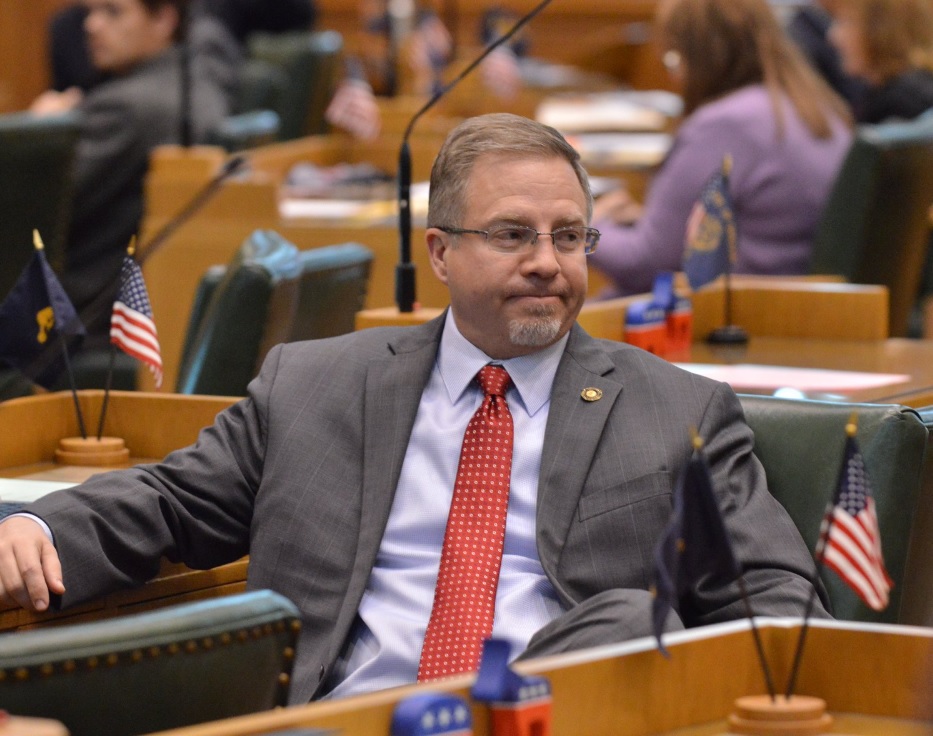 [5]
[5]
By Oregon State Representative E. Werner Reschke,
Cap & Trade, The CPP
In 2019, State Senate Republicans walked out during the legislative session over three issues, including statewide, DEQ-run, cap and trade program. The walkout effectively stopped the cap and trade bill. In 2020, a similar cap and trade bill was reintroduced in the State Legislature. The response was that both House and Senate Republicans walked out, preventing the passage of the bill once again.
A frustrated Governor Brown then signed Executive Order 20-04, creating the Climate Protection Program (CPP). Business and industry impacted by the executive order filed a lawsuit — and WON, preventing the original program from going into effect.
DEQ went back to the drawing board, creating a revised Climate Protection Program (CPP), active today. This revised CPP is estimated to impose a financial burden between hundreds of millions to billions of dollars for Oregon businesses to comply in its first year. This substantial burden underscores the significance of this new program. Furthermore, the timing of this initiative is particularly challenging given Oregon’s current economic climate. Notably, the state has experienced significant job losses, with approximately 25,000 Oregon jobs being eliminated. Additionally, two major Oregon-based companies have announced they are relocating their headquarters to other business-friendly states, and there has been no substantial investment repatriated from overseas, despite estimates suggesting trillions of dollars in potential returns. For details on Oregon’s economic woes, read “Tipping Point.”
Broken Government
Policymaking falls under the constitutional powers reserved explicitly for the legislative branch. It is critical to understand that the current situation serves as a significant warning sign of a dysfunctional government. Executive orders—whether issued by a Governor or the President—should not create new programs, lead to new costs, new regulatory burdens, or provide benefits to individuals and businesses without legislative approval.
The frequency of gubernatorial or presidential executive orders to implement new policies can be attributed to the limited likelihood of such orders being challenged in court. However, it is critical to reiterate that policymaking, also known as lawmaking, is constitutionally delegated to Congress and state legislatures, not to the presidents, governors, or executive agencies. Asserting that an agency’s mission statement grants it authority to create or augment policy outside of the legislative body is to circumvent the Founding Fathers’ intent for the separation of powers in our republican form of government.
Re-Enter Stage Left: Cap and Invest
The Governor’s proposed Climate Protection Program (CPP) is scheduled to take effect in a few months at the beginning of 2026. However, the negative impact on Oregon businesses has prompted industry to support the concept of cap and trade (a policy they vigorously opposed in 2019 and 2020). Lobbyists from prominent business groups are already advocating for the passage of a cap and trade bill during the 2026 short session, aiming to circumvent the Governor’s CPP and alleviate some of the financial burden on Oregon businesses.
Proponents of the new cap and trade program, rebranded as “cap and invest,” assert that their legislative proposal will enable businesses to survive while simultaneously achieving the climate objectives set forth by the Governor and Democratic legislators. However, when faced with a choice between the lessor of two evils, the final decision still advances evil — in this case, economic decline.
That said, there exists an alternative, better course of action: Maintain the status quo. Oregon’s existing state policy already imposes some of the nation’s most burdensome requirements on industry in the pursuit of environmental protection. Furthermore, while the financial burden of such policies are readily measurable, the resulting outcomes are often ambiguous at best. It seems as though the intention of environmental policy outweighs any real results.
Governor Fix
The Governor has the authority to prevent this impending economic calamity in Oregon. Because the Climate Protection Program is an executive order, any governor, present or future, can simply rescind Executive Order 20-04. However, if the Governor fails to do so and the Legislature were to enact a new cap and trade program in 2026, unwinding such new burdens and economic harm to Oregon’s struggling business and industry will be exceedingly difficult. The best recommendation for Oregonians is to encourage the Governor to rescind EO 20-04 promptly or to elect a new governor in 2026 who will.
Bottomline: Oregonians do not require further environmental protections. The existing clean fuels programs already impose a hidden cost of 10¢ per gallon at the pump (increasing annually); the 2021 Private Forest Accord, which dictated the pursuit of the Habit Conservation Plan, has resulted in tens, if not hundreds, of millions of lost timber harvest revenues; the Department of Environmental Quality’s new wastewater requirements cost sanitary districts and local city governments hundreds of millions of dollars (resulting in higher water and sewer rates). Oregon’s electric and natural gas prices continue to rise — prices driven significantly upward by Oregon’s current environmental policies. Furthermore, there is the very recently passed gas tax increase and a doubling of the payroll tax, which in part enables tens of millions of dollars to programs within Oregon’s Department of Transportation aimed at protecting the environment.
Grow and Invest
Instead of imposing additional environmental burdens and restrictions from the Climate Protection Program or cap and trade — Oregon’s government should adopt a pro-growth strategy. Business growth and expansion policies coupled with increases to private sector employment and family wage jobs will lead to increased state tax revenues in order to protect the environment. Prioritize growth and implement new environmental protective measures — if necessary. The fact is, Oregon’s environmental policies alone will not save the planet. Moreover, current policies are not “leading the way,” as advocates claim, but merely demonstrating what other states choose to avoid.
It’s time for Oregon to alter course